
Stilmox-CV Dds Dry Syrup
Manufacturer
Watran Pharmaceuticals Pvt. Ltd.
Salt Composition
Amoxycillin (400mg) + Clavulanic Acid (57mg)
Key Information
Short Description
Stilmox-CV Dds Dry Syrup is an antibiotic used to treat bacterial infections in various parts of the body, including the ear, nose, throat, chest, lungs, teeth, skin, and urinary tract.
Dosage Form
Oral Suspension
Introduction
Stilmox-CV Dds Dry Syrup is an antibiotic medicine designed to treat a variety of bacterial infections affecting the ear, nose, throat, chest, lungs, teeth, skin, and urinary tract. It is particularly effective against bacteria that have developed resistance to other treatments, making it a valuable option for treating resistant tuberculosis. The medication contains two active agents, amoxycillin and clavulanic acid, which work together to inhibit bacterial growth and survival. While generally safe, it is important to complete the full course of treatment to prevent the bacteria from multiplying again or becoming resistant. Side effects may include a bitter taste in the mouth and diarrhea, and it is crucial to consult a doctor if any severe reactions occur.
Directions for Use
Administer Stilmox-CV Dds Dry Syrup as prescribed by the doctor. Ensure the child completes the entire course of antibiotics. Do not use the medicine to treat viral infections like the common cold or flu.
How it works
Stilmox-CV Dds Dry Syrup contains amoxycillin and clavulanic acid. Amoxycillin prevents the formation of the bacterial cell wall, essential for bacterial survival, while clavulanic acid inhibits beta-lactamase, an enzyme produced by resistant bacteria. This combination makes the medicine effective against various infections.
Quick Tips
Your child must complete the entire course of antibiotics. Stopping too soon may cause the bacteria to multiply again, become resistant, or cause another infection. Your child may have a bitter taste in the mouth after the intake of Stilmox-CV Dds Dry Syrup. Eating citrus fruit or sipping plenty of water or fruit juice may help. Encourage your child to drink plenty of water in case diarrhea develops as a side effect. Never give Stilmox-CV Dds Dry Syrup until and unless prescribed by the doctor. You must also never share your child’s medicine with anyone else even if they show similar symptoms. Do not give Stilmox-CV Dds Dry Syrup to treat common cold and flu-like symptoms caused by viruses. Never save medicine for future illnesses. It cannot be said whether the same medicine will work on future infections. Check ‘expiry’ before giving Stilmox-CV Dds Dry Syrup to your child. Immediately discard all the expired medicines. Stop Stilmox-CV Dds Dry Syrup immediately if your child develops an itchy rash, facial swelling, or breathing difficulty. Report to the doctor without any delay.
Related Medicines
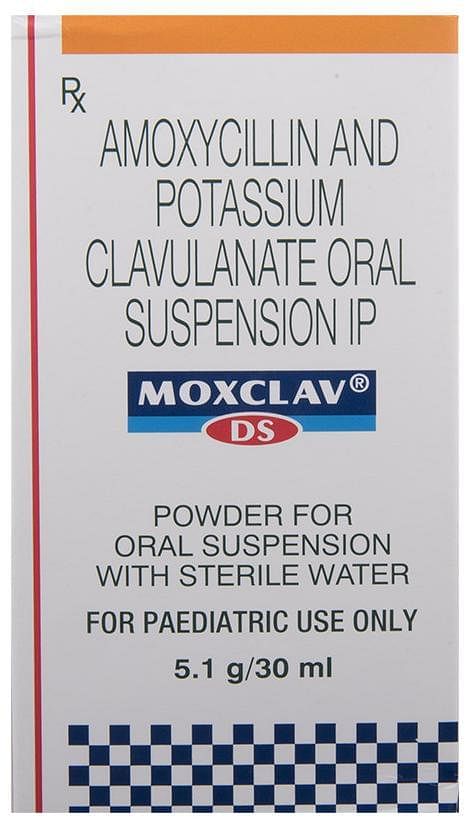
Moxclav DS 457mg Oral Suspension
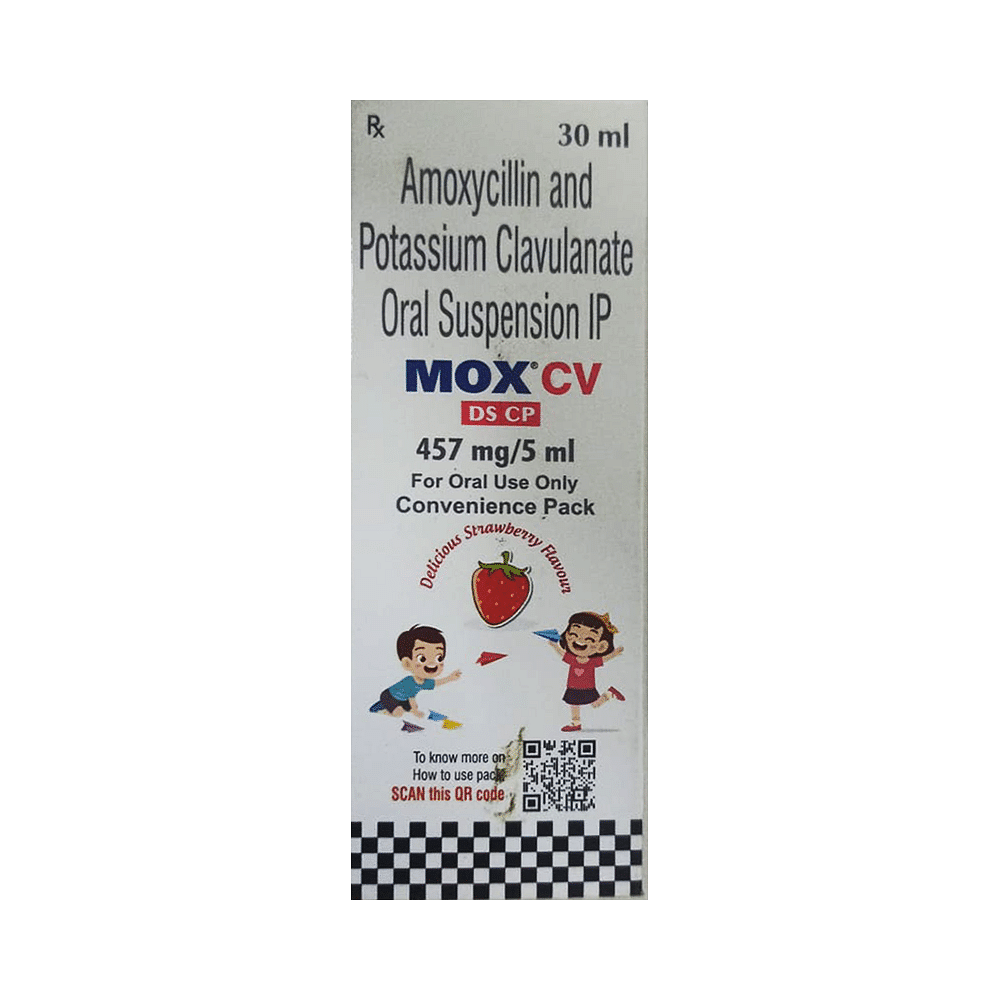
Mox CV DS CP Oral Suspension Delicious Strawberry

Moxycare CV Duo Dry Syrup

Clarence DS Duo Oral Suspension
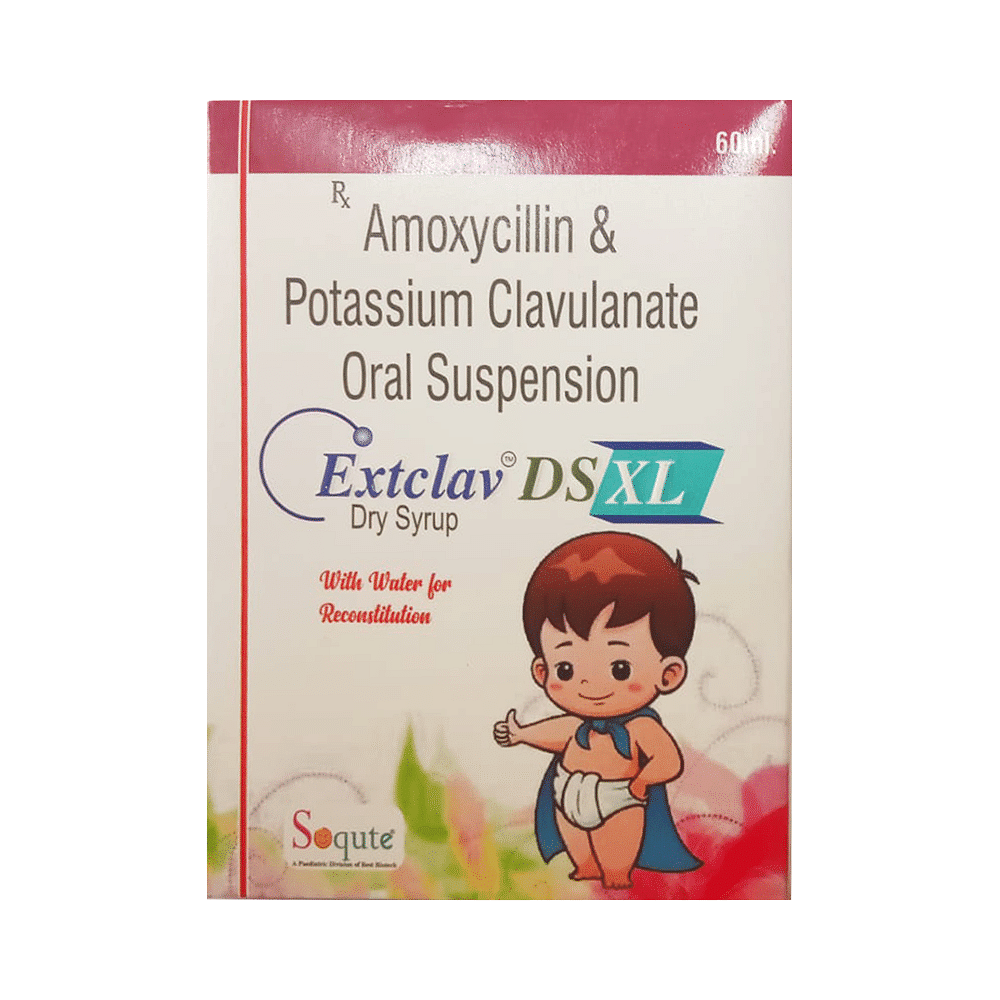
Extclav DS XL Dry Syrup

Pteron-A Forte Oral Suspension
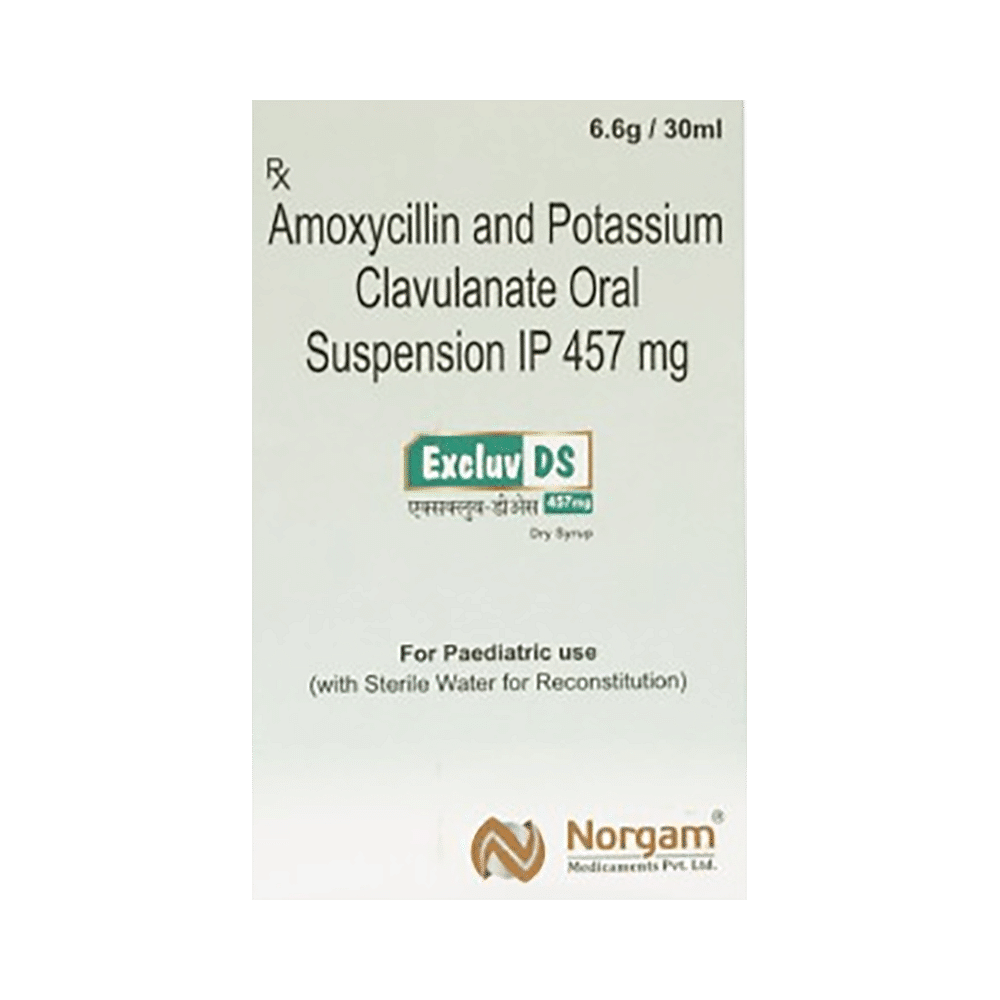
Excluv DS 457mg Dry Syrup

Nefmox-CV DS Dry Syrup
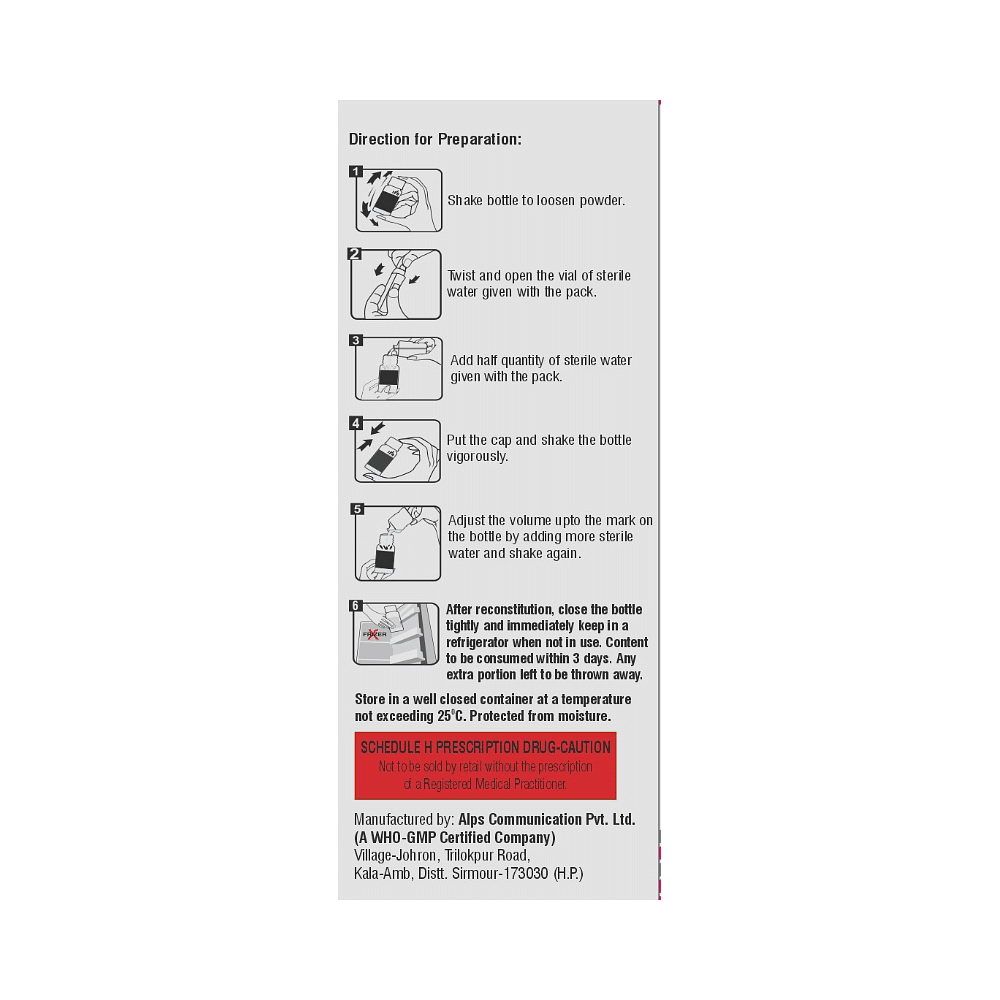
Moxymart-CV 457 Dry Syrup

Moroxil-CV DS Dry Syrup
Frequently asked questions
Can other medicines be given at the same time as Stilmox-CV Dds Dry Syrup?
It is essential to inform your child's doctor about any other medicines your child is taking before starting Stilmox-CV Dds Dry Syrup. Additionally, consult with your child's doctor before giving any medicine to your child, as Stilmox-CV Dds Dry Syrup may interact with other substances.
Can I get my child vaccinated while on treatment with Stilmox-CV Dds Dry Syrup?
Antibiotics usually do not interfere with vaccine ingredients or cause adverse reactions in children who have recently been vaccinated. However, it is recommended to wait until your child has recovered from the illness before getting them vaccinated.
Which lab tests may my child undergo while taking Stilmox-CV Dds Dry Syrup on a long-term basis?
During prolonged therapy, your child's doctor may conduct regular kidney and liver function tests to monitor their condition.
Can I give a higher than the recommended dose of Stilmox-CV Dds Dry Syrup to my child?
No, giving a higher dose of this medicine can increase the risk of side effects. If your child's symptoms worsen, consult your doctor for re-evaluation.
Can I stop giving Stilmox-CV Dds Dry Syrup to my child when the symptoms are relieved?
No, do not stop giving this medicine to your child unless the full course of treatment is complete, even if you feel better. The symptoms may improve before the infection is fully cured. Continue giving the medicine for the recommended duration to ensure the infection is completely cleared.
Can the use of Stilmox-CV Dds Dry Syrup cause diarrhea?
Yes, Stilmox-CV Dds Dry Syrup may cause diarrhea. This is because the antibiotic kills harmful bacteria, which can also affect the helpful bacteria in your child's stomach, leading to diarrhea. If your child experiences diarrhea, encourage them to drink plenty of water or other fluids. Consult your doctor if diarrhea persists and you notice signs of dehydration, such as less frequent urination with dark-colored and strong-smelling urine. Do not give any other medicine to your child without consulting a doctor.
Do all viral common colds result in secondary bacterial infection?
Most of the time, bacterial infections do not follow viral infections. Giving antibiotics in viral infections can increase your child's risk of developing side effects. Use antibiotics only after consulting with your child's doctor.
The mucus coming out of my child's nose is yellow-green. Is it a sign of a bacterial infection?
Yellow or green mucus in the nose does not necessarily indicate the need for antibiotics. During a common cold, it is normal for mucus to thicken up and change color. Symptoms often last for 7-10 days.
Is there any sign which shows that my child needs immediate medical attention?
You must contact your child's doctor immediately if your child experiences serious allergic reactions (breathing problems, skin rashes), gastrointestinal infections (diarrhea), or liver damage (weakness, paleness, vomiting). Although rare, these side effects are serious and require medical attention.


